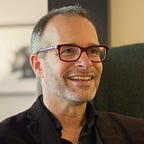I plan to be cloned. Would you like to join me?
Recently, interest in longevity and extending “healthspan” has exploded. Tens of billions of dollars have been invested by some of the biggest names in finance and industry. Breakthrough scientific papers have been published on the cellular mechanisms of aging. Topical books from scientists and doctors are airport bestsellers. A longevity XPrize has been launched. Clinical trials in dogs — perhaps the best model organism for humans — are underway and delivering promising early results. And Bryan Johnson, aka Zero, has become the first longevity influencer, preaching “Don’t Die” to his followers.
Unfortunately, there’s just no escaping death. The oldest age-verified person, Jeanne Calment, lived to be 122 years and 164 days old. Pew Research expects just 101,000 US centenarians in 2024, or about 0.03% of the population. Longevity advocates talk about longevity escape velocity, where new treatments that slow biological aging outpace chronological aging, but the longevity rocket ship isn’t even on the launchpad yet.
We already know how to live a long, healthy life. Don’t smoke or drink, eat a healthy diet, don’t overeat, exercise regularly, avoid stress, and sleep well. The downside is this approach takes effort and time. Worse, even monk-like dedication won’t guarantee that one of the big killers — heart attack, cancer, accidents, and stroke — won’t get you. Or that your brain won’t turn to mush years before your body does.
We’re still some time away from verifiable longevity increases in pill form. Drugs popularized by longevity early adopters, including rapamycin, metformin, resveratrol, and more recently, semaglutide (Wegovy, Ozempic) have yet to be properly evaluated in humans for their effects on aging. Indeed, the FDA still considers aging a natural process, not a treatable disease. But even when this perspective shifts and human studies are initiated, conducting clinical trials for age-extending drugs will be tricky. The younger the participants, the longer it will take to get clear results.
Practically, I’m out of time. I recently turned sixty years of age. According to the US Social Security Administration’s 2020 periodic life table, I’ve got just 20.47 years left — perhaps long enough to see the first generation of FDA-approved human longevity therapies hit the market, but not leaving much time to benefit from them.
This is why I intend to be cloned. It’s not a very popular choice at the moment but it’s one that’s virtually guaranteed to extend my biological life, just not my consciousness.
Identical twins are naturally-produced clones. And intentional cloning is just science. There’s a growing list of animals, including monkeys, that have been cloned. Some day in the future, humans will undoubtedly be added to this list; we just don’t know when, exactly. After the novelty wears off, we’ll be on the path to eventual legalization and acceptance, much as the history of IVF played out. So I’m making preparations for this future which, to be clear, I don’t expect to see in my remaining lifetime, but has decent odds of happening by the end of this century.
I am fully aware that my clone won’t be me. He’ll be my identical twin brother, only with a different birthday. Conceived through nuclear transplant, he’ll be born a baby, to a different mother. Entering into the world at a different time, he’ll have a very different life experience than my own. It’s not exactly resurrection but more like “rebooting” a program. My genome, my unique set of genetic instructions, will get another life cycle. Only this time, the child produced will have a life in part informed by my own life experiences.
For the last few years, I’ve explored what needs to be done to prepare for my future cloning. This is no hobby project. It’s some of the most serious and interesting research work I’ve ever done, and it’s led to intriguing discussions with colleagues, other professionals, and my family members.
I’m nearing the end of my explorations. Borrowing another term from computer science, I expect to be fully “backed up” quite soon. I’ve learned it’s not demanding, time-consuming, or expensive. It’s mostly like the estate planning one might do when creating a will or Trust, along with a dash of cellular biobanking. I like to think of it as setting up a life insurance policy.
Once I’m backed up, and I’ve offered the service to my extended family and close friends, I’m thinking about opening it up to others that might be “clone curious”. If you find this interesting and would like to learn more, please reach out to me using my LinkedIn profile.
Andrew Hessel is the co-author of The Genesis Machine: Our Quest to Rewrite Life in the Age of Synthetic Biology. He’s also the co-founder of Humane Genomics, a company that makes artificial viruses that target cancer, and the Genome Project-write, a champion of whole-genome engineering.
